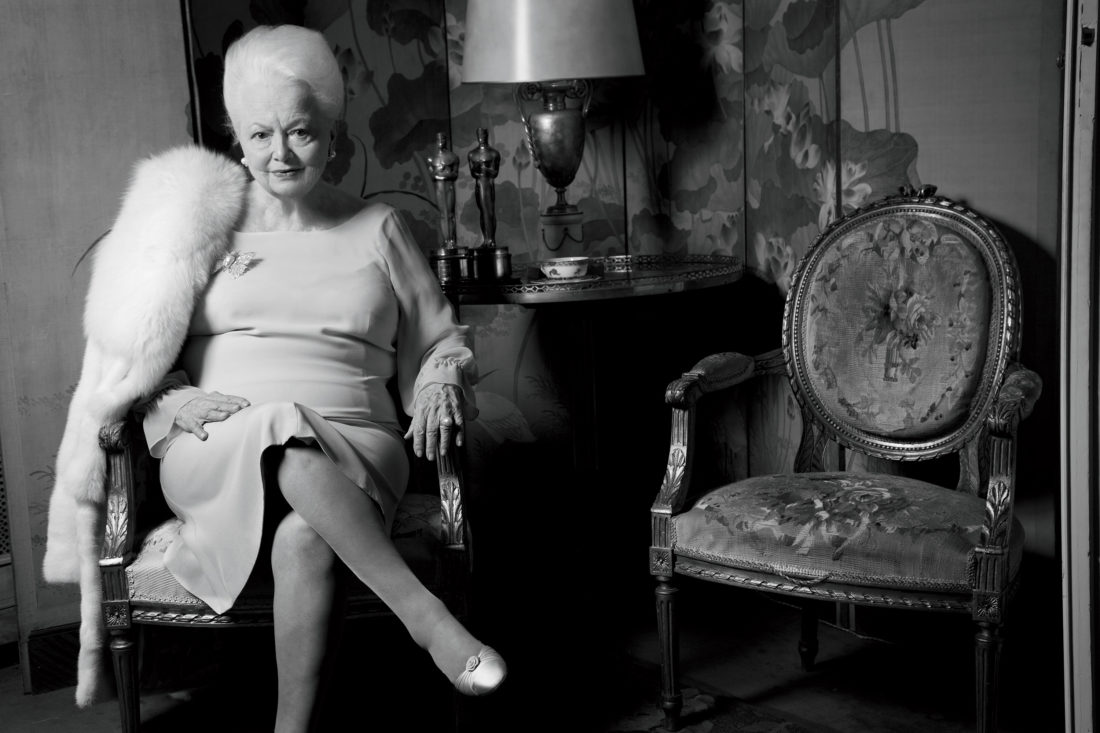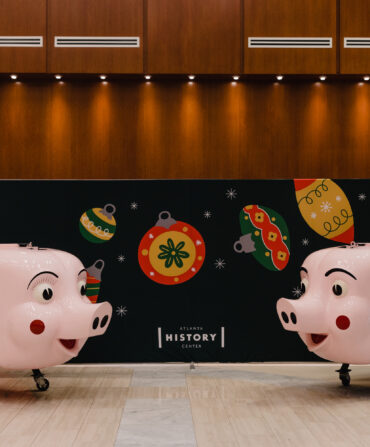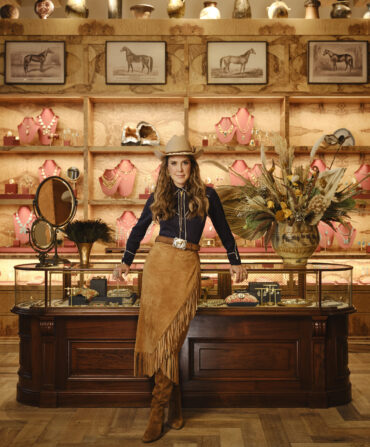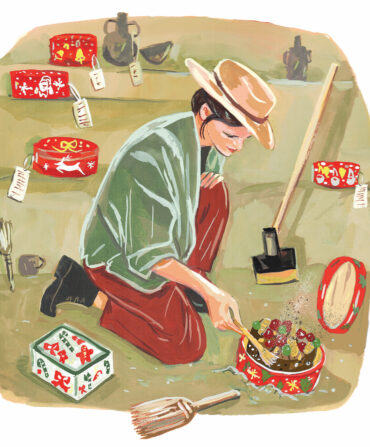Would you consider doing something illegal? That’s what director George Cukor asked the then twenty-two-year-old actress Olivia de Havilland when he phoned her in 1938. He was making an off-the-record call inviting her to defy the contract that tied her to Warner Bros. and read for the role of Melanie Hamilton Wilkes in Gone with the Wind. She auditioned and landed the part. But then came an even bigger task: persuading studio chief Jack Warner to release her to make a picture being produced by a rival studio.
But as anyone who knows the actress can attest, she relishes circumventing Hollywood’s edicts. “I called the boss’s wife,” she says, “and asked, ‘Would you consider having tea with me at the Brown Derby?’” Like most in Hollywood, Ann Warner had been glued to the Gone with the Wind novel and couldn’t wait to see it on the big screen. “I understand you,” Ann said, “and I will help you.” Before long, Jack Warner was signing documents permitting de Havilland to go across town to Culver Studios to appear in the epic. And the rest, as they say, is history.
De Havilland will begin her hundredth year next summer. Hers has been a lifetime of making bold, unorthodox decisions. When she was twenty-seven, she sued Warner Bros. to get out of that onerous contract, a case that paved the way for actors to work as independent artists (stars who now cash checks for millions owe her a debt of gratitude). In the 1950s, she married Paris Match editor Pierre Galante and moved to Paris, where she still lives, surrounded by accolades from a monumental career, including two Best Actress Oscar statuettes, the National Medal of Arts, and the Légion d’honneur, France’s highest award. On the seventy-fifth anniversary of Gone with the Wind’s December premiere at the Loew’s Grand Theatre in Atlanta, when more than 300,000 people lined the streets for a glimpse at its stars, de Havilland looks back on the most successful movie ever made.
What do you consider the most entertaining part of the picture?
The sequence at the charity ball and bazaar to benefit Atlanta’s Confederate military hospital—it’s filled with marvelously comic moments. But there’s a wonderful thread of humor that runs straight through the film. That greatly contributes to its unique vitality.
You’ve worked with such legendary directors as William Wyler, John Huston, and, on Gone with the Wind, Victor Fleming, who replaced George Cukor. Who got the best performance out of you?
They didn’t get the performances out of me. I gave the performances to them.
How did Fleming help you play Melanie?
Vivien Leigh and I were deeply attached to George and secretly sought his help all during the filming. But Victor really was the right director for this epic. The first time we worked together was when we filmed the scene where Melanie, engaged to Ashley and therefore the future mistress of Twelve Oaks, greets Scarlett. We rehearsed and I was warm, pleasant, and polite. He drew me aside and very gently observed, “Every word that Melanie says, she means.” That direction was an invaluable key to her character, and it served me throughout the film. Victor, with all his virility, was sensitive and insightful.
What’s your most vivid memory of the film’s premiere?
I was seated on Jock Whitney’s right. He was the financier and owner of the New York Herald Tribune. He was also an investor in Gone with the Wind. On his left were Margaret Mitchell and her husband, John Marsh. The audience was utterly captivated by the film. Total silence reigned—until the great panoramic scene at the Atlanta depot where we see, laid on stretchers, row upon row upon row of wounded Confederate soldiers. I heard John say to Margaret, “Why, if we’da had that many soldiers we’da won the wawah!”
When the picture was released, Hattie McDaniel, who won an Oscar for her role as Mammy, couldn’t fully participate in the festivities because of Jim Crow. How were the black actors treated during filming?
As fellow actors!
You were born in Japan and have lived most of your life overseas. Yet you’re in this movie that’s now regarded as Americana of the highest order. Does being in Gone with the Wind make up for all the years you’ve lived outside of the United States?
Well, I have, indeed, lived most of my life overseas, but I’ve returned repeatedly to work in film, special television productions, and the New York theater. There have also been tributes and similar occasions that have called me back to Hollywood. I’ve returned so often, I almost feel that I’ve never left.
How do the French regard Gone with the Wind?
In the words of a French friend of mine, “We think that it is one of the most important, the most romantic, and the most enchanting films in the world.”
You dined with President Franklin D. Roosevelt at the White House. Do you know whether Roosevelt liked the film?
I don’t. But I do remember an item reported in the press that the president was trying to get a good night’s sleep on the night his family ran Gone with the Wind at the White House. He complained vociferously about the amount of time Sherman was taking to win the Battle of Atlanta.
What did you discuss with him?
He thought every American should own an acre of land. The country was then in the grip of the Depression. Millions were not only starving but were without resources of any kind. I think the president felt that through owning and cultivating an acre of land, most Americans could be self-sustaining in case of catastrophe. He may well have been influenced by the role that Tara played in Scarlett’s life—it sustained her. Then there were Gerald O’Hara’s words: “Land is the only thing in the world worth working for…because it’s the only thing that lasts.”
You’ve won the highest honors for contributions to the arts and culture in two countries. What means more—all those first-class prizes, or being in the most popular movie ever made?
Must I choose between a sapphire and an emerald?








